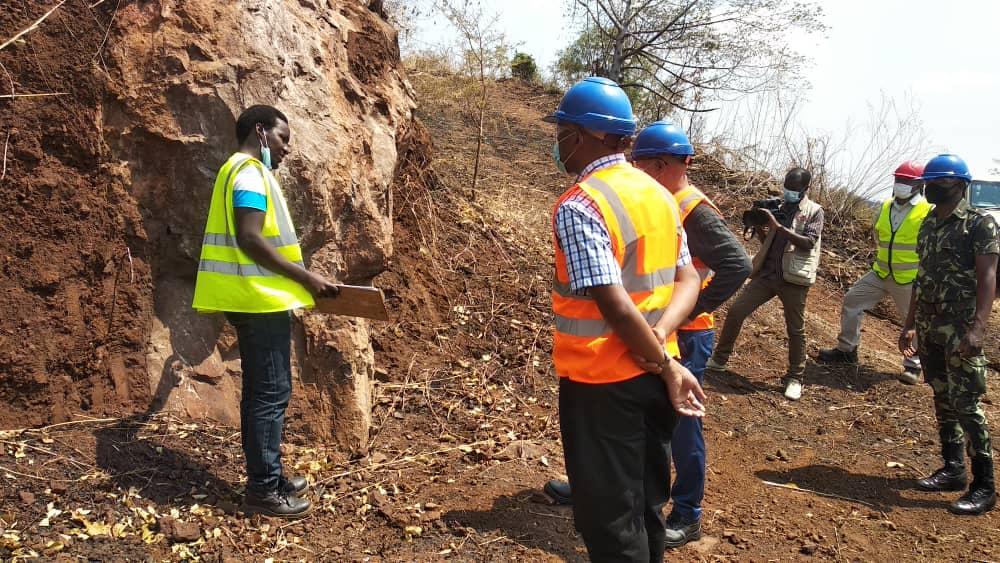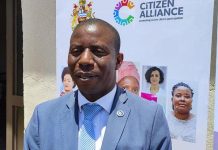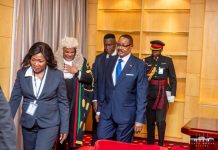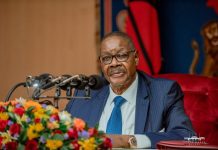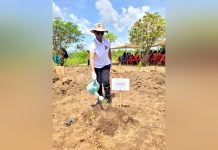Africa-Press – Malawi. In his State of the Nation address in parliament on 4 September, President Dr Lazarus Chakwera refused to accept that Malawi is poor. He lamented that Malawi exports US$85 million in gold to the Middle East every year and has also other resources that are tripped by syndicates of people in the public sector who exploit decades of bad government policies and practices to enrich themselves and their private sector accomplices.”
Chakwera could not state who is exporting the gold or it is mined. That aside, Chakwera and Tonse Alliance government need to state clearly their position regarding mining. Will government just sit back and watch foreign investors export our minerals illegally? What measures has / will government put in place to ensure that minerals benefit the country and communities where mining activities are taking place.
The mining sector can turn the economic fortunes of the country if government can take it seriously. It can promote economic development, reduce unemployment, reduce poverty, boost foreign exchange reserves and reduce dependence on donors.
Malawi has several important and precious minerals such as Diamond (Rumphi), Coal (Rumphi, Mzimba, Karonga), Gold (Lilongwe, Mzimba), Uranium (Karonga, Mzimba), Granite (Mchinji) and Bauxite (Mulanje). Unfortunately, no one seems to care about the mineral wealth. The sector is at the mercy of foreign investors who have plundered the mineral resources with the help of greedy and unpatriotic Malawians.
Some foreign investors have been exporting minerals illegally under the guise of sending samples for many years without being controlled. As if this is not enough damage to the economy, illegal mining is taking place everywhere in the country and foreign companies keep on stealing minerals under the watch of the government. For example, there are reports that some Chinese nationals are extracting huge minerals in Halahaunda, Mzimba district using someone’s licence. Whether foreign exchange is remitted to Malawi after the sale of minerals is something that government should establish.
The Tonse Alliance government should quickly move in and take stock of the mining activities of all foreign companies in Malawi and scrutinise their license conditions and put in place stringent measures to stop illegal mining and externalisation of minerals. Apparently Minister of Mining Rashid Gaffar has not said anything about his plans or government’s plan in mining. He is the only minister so far who has not been active.
Expectations are high that Chakwera’s speech will be translated into action. Malawians want to see an end to the impunity of foreign investors stealing minerals. Government can no longer be a spectator in the mining sector nor leave it to foreign investors, many of whom are crooks, to dictate the terms. The issue should also not be left in the hands of the communities to agree on mining terms with foreign investors. The contracts are too complex for the ordinary people to understand. Foreign investors have reneged on their corporate social responsibility obligations. This is why government should take a leading role in the sector to avoid ordinary being exploited.
Botswana offers the best model of how to handle the mining sector. Through the parastatal company Debswana, the government has a 50-50 joint partnership with De Beers of South Africa. This is a win-win situation. Government should establish a state owned company that should enter into joint venture with foreign investors to a win-win situation. It is in the interest of Malawians to see government investing in the mining sector and not to leave everything to the private sector.
At the official opening of the first National Development Conference last month, President Chakwera rightly noted that “If we want a new Malawi, we must accept that it is we who must build it with our own resources”. The question is: does president Chakwera and Alliance government have the resolve to develop the mining sector for the benefit of all Malawians?
For More News And Analysis About Malawi Follow Africa-Press

